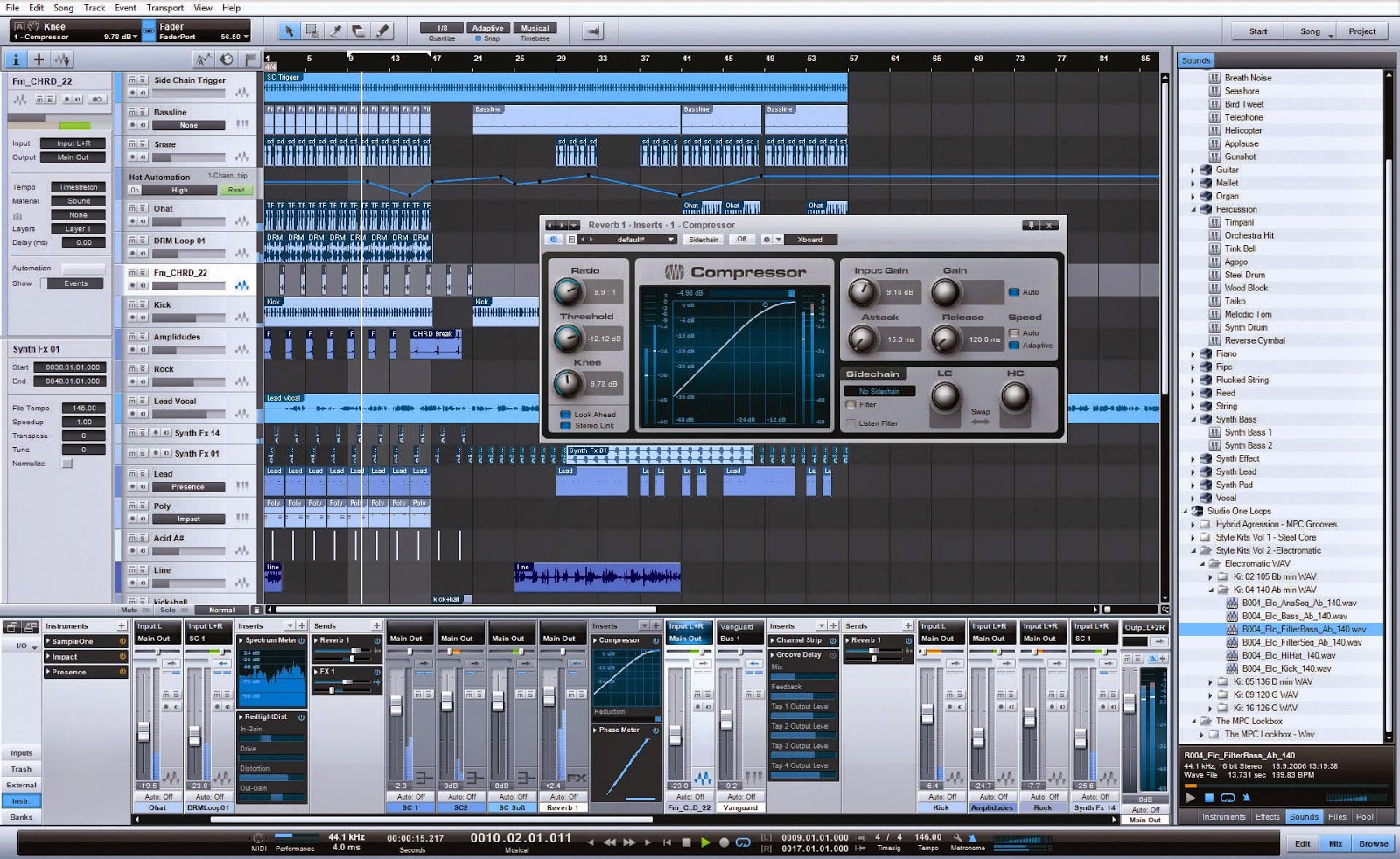This article is a bit unusual: I wanted to make an overview of the 2015 most famous DAWs, explaining shortly the features and the price range, to help any of you who wants to start recording or to change workstation to choose a new one.
Let's start by saying that this will not be an in-depth review of every daw, we will only focus on the core features and the differences among them, keeping in mind that all of them are good and capable of producing the best music possible, and all of them comes with a collection of plugins bundled in order to start mixing right away without the urge to download 3rd party apps.
Let's get started!
AVID PRO TOOLS: the music production standard for many years, and still a milestone in the world of professional sound engineering, this product has started as a closed ecosystem capable of working only with its own hardware, while today it expanded its compatibility with any audio interface. Instead of buying the Daw, the producer offers today a time license which can be montly or yearly.
STEINBERG CUBASE: The second most common daw used in the studios, Cubase has currently reached the version 8, which promises improved speed, reduced cpu load, a new in-place audio bounce from midi and a wide library of plugins, samples and sounds (plus the new ui is really good looking).
The prices varies from 99€ to 599€, according to the number of features of the chosen version.
ACOUSTICA MIXCRAFT: ranging from 89,95$ to 164,95$ this Daw is obviously cheaper than the previous two and less known, but it has a good reputation due to a particularly simple and easy workflow, which makes it really suggested for songwriters. Plus the "Pro" version is packed with plugins and virtual instruments that makes it a very complete solution.
PRESONUS STUDIO ONE: ranging from 115,14€ to 460,72€ this daw is probably my favourite right now. It has a nice, smooth and clean interface, and a serie of feature that makes mixing really fast and stress free, plus it has a nice free version that makes you get acquainted to the interface before deciding to upgrade.
This daw too comes with a wide selection of plugins and virtual instruments.
REAPER: this daw has a very strong and passionate community over the internet and it is the main choice of many small studios due to its cheap price (from 60 to 225$) and the fact that is a stable, reliable and feature packed piece of software, with a collection of plugins (called reaplugs) which can be downloaded freely and used in any daw, and these plugins most of the times will work better than the ones bundled in the other workstations.
The interface is also customizable with skins and themes, and it works in portable version too.
CAKEWALK SONAR: another daw with a long past (comparable only to Cubase and Pro Tools) which has kept on improving with every release, becoming one of those who sets new trends and get copied by the competitors. Sonar was the first manufacturer (maybe along with Presonus Studio One) to incorporate a mixer-style channel strip on each channel with compressors and other processors integrated like in an analog console, and its quality and flexibility has simplified the workflow of many producers around the globe. Prices span from 106 to 533€, and the license can also be bought monhtly.
MAGIX SAMPLITUDE: Magix is another german producer which has a wide range of music solutions, which span in price from 49,99€ to 3050€ (of the "Sequoia version" of their daw).
Samplitude offers a very complete solution for the home studio, complete with mixing and mastering tools, at 99€, also with samples and virtual instruments, while the most expensive versions are obviously aimed to the most professional studios and feature tools rarely found anywhere else (for example metering tools with radio, television and cinema standards).
APPLE LOGIC PRO: a very complete daw, particularly popular in the U.s., that works as the "professional version" of Apple Garage Band. With only one version, full featured, at 199,99€, this software comes with a wide array of good plugins to mix "in the box" and supports a.u. plugins (audio unit), a proprietary standard, instead of Vst plugins.
N-TRACK STUDIO: this software is probably the one with the lowest price to offer a complete digital audio workstation (49€ and 89€, but the 49 version has already all the features required for working in a home studio). The daw is cross platform (it has even an android version!), supports unlimited tracks, Vst and external hardwares, plus whoever buys the current version (the 7), has the free upgrade to the 8. The daw comes with a virtual drum instrument too.
MOTU DIGITAL PERFORMER: this daw has been a protagonist of the last decade, and is today supported by MOTU, one of the finest audio interface producer in the market. With a price of 499$, this software is a really complete workstation, with appealing graphics (and support for themes) and a very refined audio engine. It supports also music notation.











This overview of Digital Audio Workstations (DAWs) from 2015 provides a valuable snapshot of the music production landscape during that time, offering insights into the features and price ranges of some of the most prominent options available. The succinct summaries of each DAW, including Avid Pro Tools, Steinberg Cubase, Acoustica Mixcraft, PreSonus Studio One, Reaper, Cakewalk Sonar, Magix Samplitude, Apple Logic Pro, N-Track Studio, and MOTU Digital Performer, give readers a quick glance at the choices they had for music production. To discuss more about visit Sound Engineering Colleges in Chennai
ReplyDelete